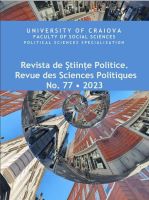New Insights into the Origin of the Trust
New Insights into the Origin of the Trust
Author(s): Irina GvelesianiSubject(s): Civil Law, Sociolinguistics, Philosophy of Law, Sociology of Law
Published by: Editura Universitaria Craiova
Keywords: Affatomie; common law; juridical-linguistic study; trust;
Summary/Abstract: Fiduciary duties have always included the “triad” – “loyalty, due care and good faith” (Atherton, Blodgett & Atherton, 2011 : 4) – accompanied with trust and reliance. Moreover, fiduciary relations similarly to the entrusting relationships have a long history of development. They existed in 1790 B.C. in the Code of Hammurabi (Zambakhidze, 2000 : 59). Their roots can also be found in Old and New Testaments, in the history of the Japanese societies, etc. Despite these facts, the trust (a manifestation of entrusting relationships) is usually treated as a “product” of equity, which presents a unique characteristic of common law – the duality of ownership. It is difficult to find historical roots of the trust. Accordingly, its origin raises controversy among the scholars. The paper presents an innovative attitude towards the study of the origin of the trust. The major accent is put on the comparative analysis of the Salian Franks’ affatomie and the English trust, their juridical and linguistic peculiarities as well as the verbal realization of some concepts presented in the Salians’ legal code. The greatest attention is paid to the appropriate historical background, namely, migration of the Germanic tribes, interconnectedness of the Germanic peoples and their languages, linguistic and juridical contacts, etc. The results of the research reveal that the common law trust shares the major peculiarities of the Salian Franks’ affatomie. Moreover, the existing linguistic as well as juridical data point to the Germanic roots of the English entrusting relationships.
Journal: Revista de Științe Politice. Revue des Sciences Politiques
- Issue Year: 2023
- Issue No: 77
- Page Range: 144-153
- Page Count: 10
- Language: English

